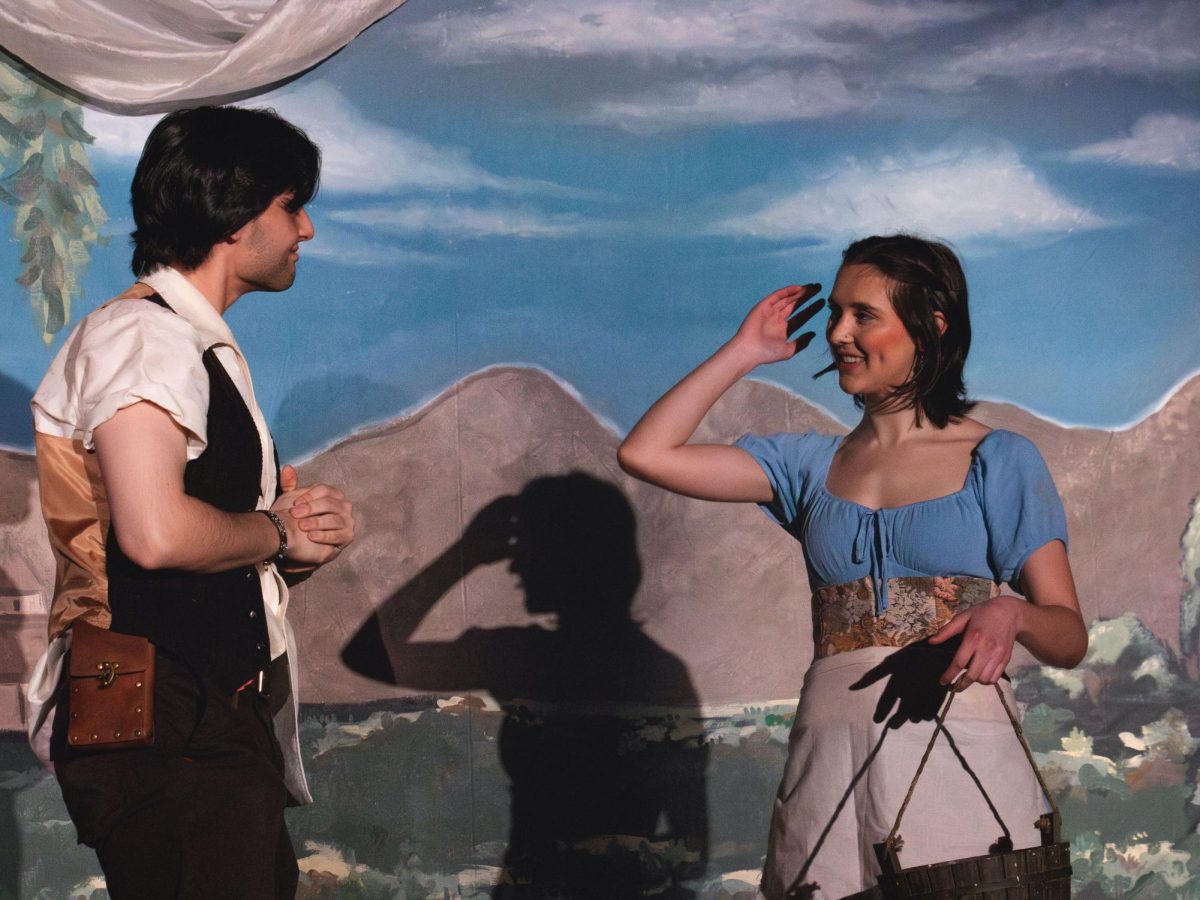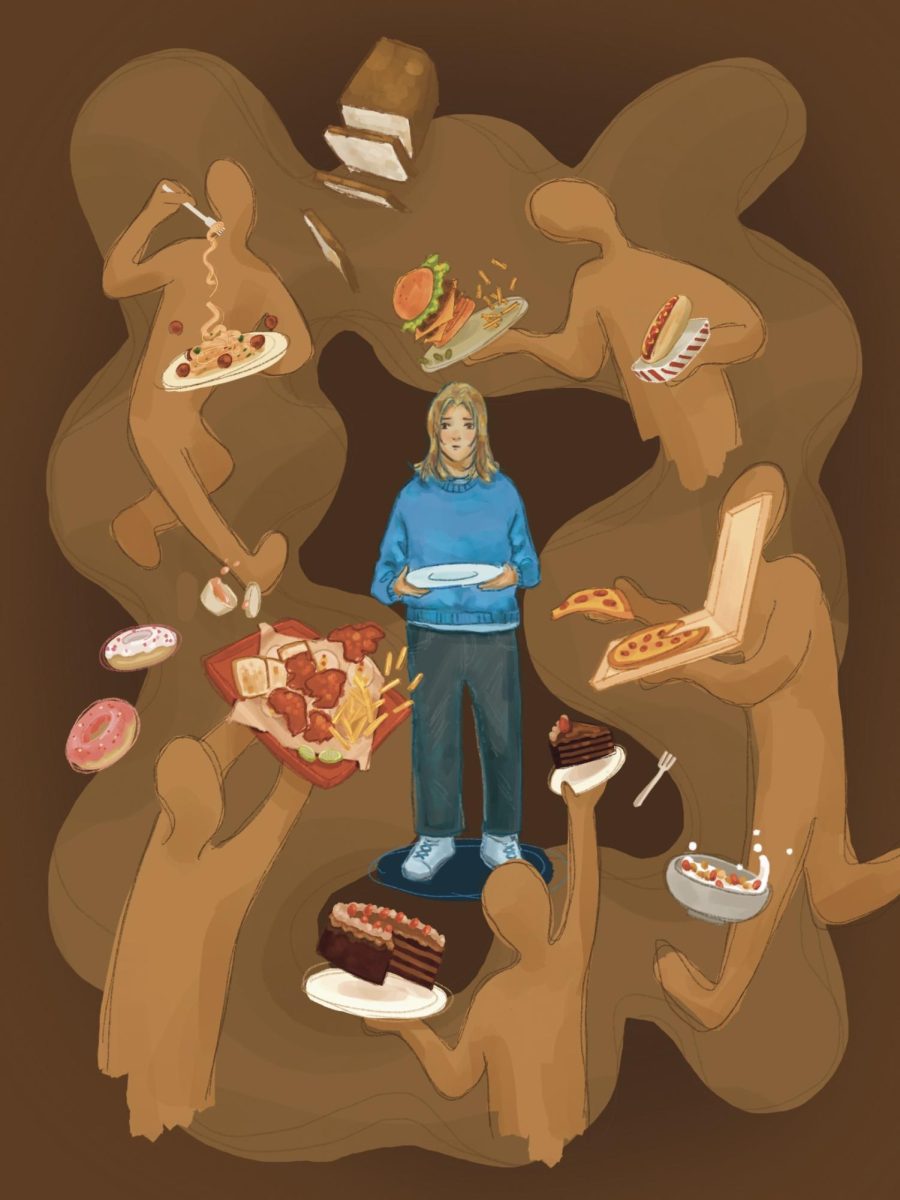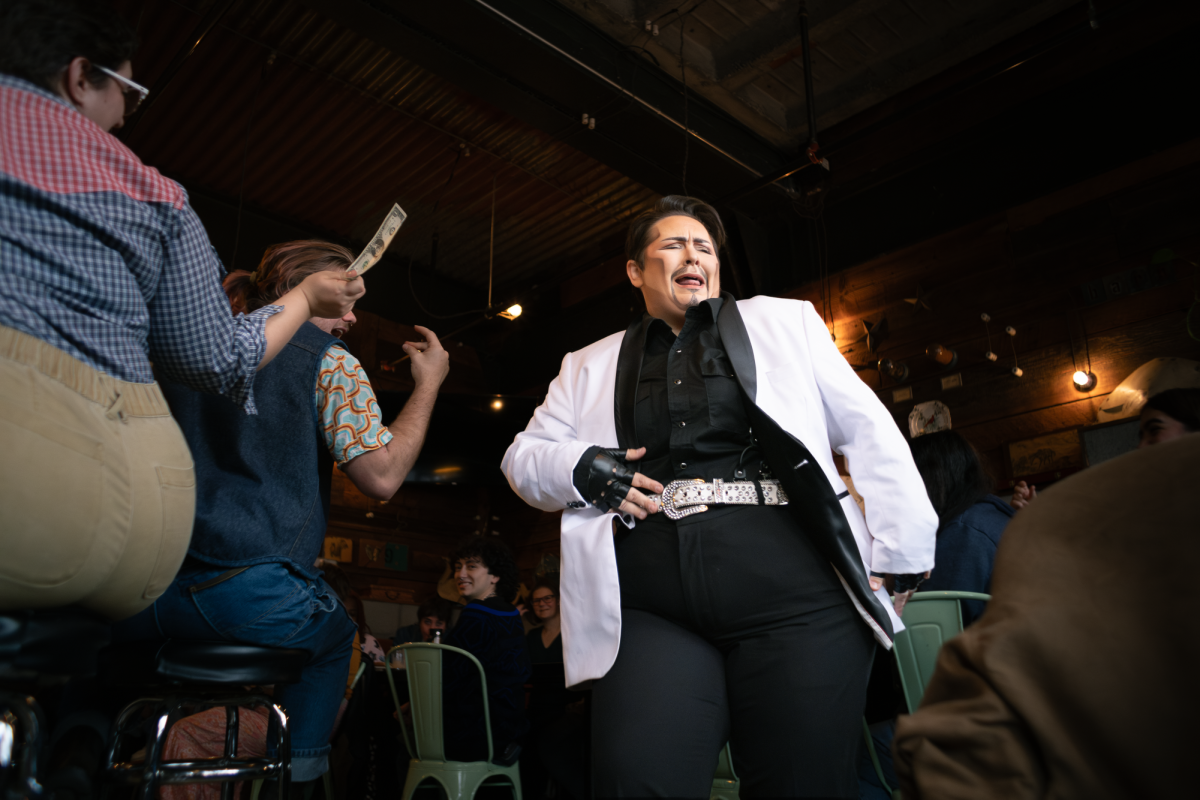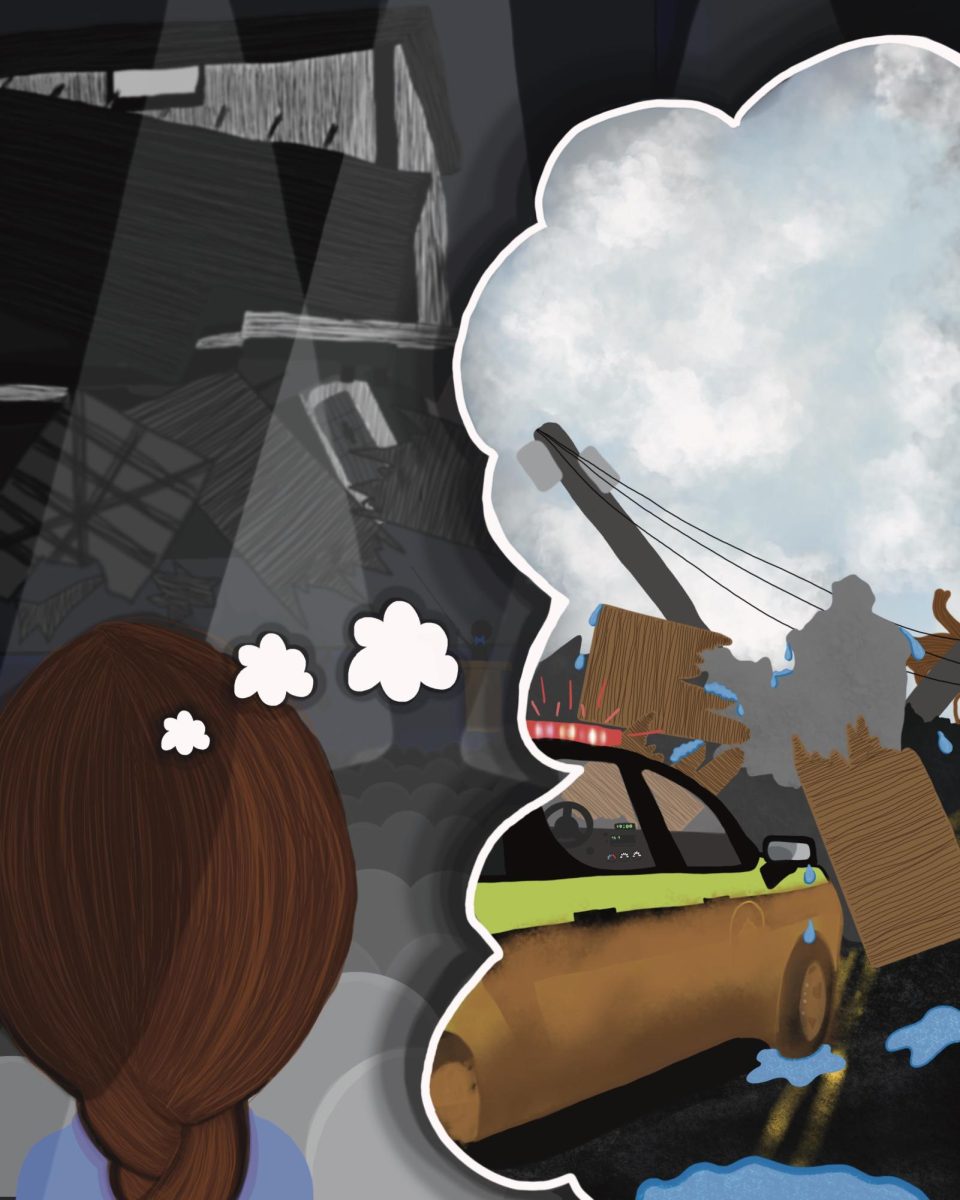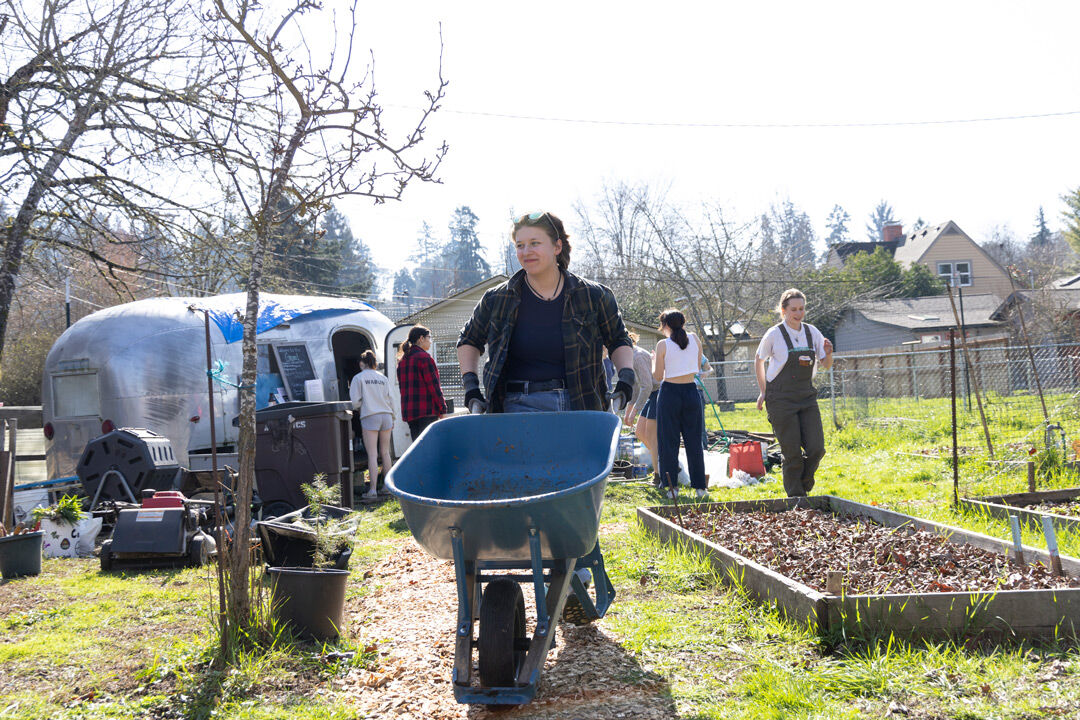Christelle Auzas rolls up to WJ Skatepark in a green knit beanie and a loose black button-down. She greets two of her friends and fellow skaters, April Edelen and Emily Heinrichson, before turning her attention to the bowl.
“Jesus, it’s cold, huh?” she says, rubbing her gloved hands together, before nonchalantly dropping in. She dips into the 15-foot drop, knees bent, and soars up the other side, catching herself on the metal lip and swinging back down. It’s hard to imagine that such a confident skater had ever been nervous to start.
As a kid, there were some mornings when Christelle Auzas would sit in the car outside the park, too afraid to open the door.
She was only 12 years old at the time, and had picked up the sport after finding an old, beat-up board of her older brother’s in the garage. After a few days of landing on her butt every time she tried to balance on the wheels, she started to get the hang of it and became hooked on cruising around her Arizona neighborhood.
There was something different about the park, though. Auzas’ dad and brother would drive her there early in the morning as the sun rose, casting dusty shadows on the asphalt. But even as she tried to beat the crowds, there were some days when the noise from the parking lot — a chorus of older men shouting expletives and wheels grinding on metal — was enough to intimidate her into staying in the backseat for just a few more minutes.
“It’s like I could smell the masculinity,” she says, laughing. Auzas, now 21 and a senior at the University of Oregon, has become an accomplished skater in the last nine years. But she still remembers that feeling of a scared young girl, afraid to start something new.
Auzas has since made it her mission to encourage girls to pick up skating. Skate culture is notorious for being overwhelmingly male, like many sports, and less than friendly to beginners. That’s why Auzas started the group “Squirrels of WJ” (Washington Jefferson Skatepark), a crew of like-minded girls and women who offer tips, open skate-nights and if nothing else, “a friend to skate with,” Auzas says. She hopes the group can be a part of what she sees as a wider, national movement to make skateboarding more inclusive to people of all genders, races and backgrounds.
For Auzas, the joy of skateboarding should be something “everyone gets to experience.”
“A lot of skaters were misfits when they were younger, or didn’t fit in,” she says.
As a young teen, Auzas used skating as a way to get out of the house. She had recently moved to Portland after her parents’ divorce and didn’t get along with the other kids at school — it was through the self-described “weirdos” she ran into at skateparks and around the streets of Portland that she developed a community where she felt at home. There only seemed to be one glaring difference between herself and the group of kids she hung out with: most of the time, she was the only girl.
A study by the Public Skatepark Development Guide reported that 77 percent of skaters in the U.S. are male. When focusing on skaters who ride at least once a week, the percentage of men increases from 77 to 83 percent.
It would be erasing history to forget that women have skated since the sport came into existence. The legendary 1970s skate team “Z-boys,” whose story was popularized in the 2005 feature film “Lords of Dogtown” included one woman, Peggy Oki. And in the 90s, girls could look up to underground heroes like Cara-Beth Burnside and Elissa Steamer. Still, female skaters have typically received much less media attention and fewer sponsorship deals than their male counterparts.
Even some industry legends hold reservations about women joining the sport. Nyjah Huston, the highest-paid skateboarder in the world, sponsored by an extensive list of brands from Nike to Diamond Co., was quoted by Thrasher in 2013 as saying, “I personally believe that skateboarding is not for girls at all. Not one bit.” In a later apology he wrote online, Huston seemed to double down on the idea that women couldn’t handle the danger, saying, “What I meant was that skateboarding is a gnarly sport, in general, and as someone who knows the wrath of the concrete all too well, I don’t like the thought of girls (like my little sister) getting hurt.”
Auzus sees the close-mindedness of some male skaters as ironic. She finds it surprising that a group of athletes who find opportunity in every guard rail, parking curb and twist in the pavement, create barriers inside their own sport.
By the time she reached the University of Oregon, Auzas was determined to find a way to encourage more girls to pick up a board. While she’d been pleasantly surprised at how friendly the locals were in Eugene, there was a stark lack of gender diversity in the skate community. Her idea was to create an informal, girls-only group, in which they could exchange phone numbers and let each other know when they’d be at the park. Then, at least, beginners would feel less alone. Now, she just needed a name.
As she pondered the idea while skating to class one day, she caught a glimpse of a squirrel scampering across the path. The name hit her: skater, girl… squirrel. It was perfect.
Now, on a typical week, the “Squirrels” group meets once or twice at WJ Skatepark to practice and hang out. They host open “Ladies Nights” some Thursdays, where new members are welcome to come meet other girls and practice riding. Auzas also gives private lessons to skateboarders at all levels, either at the park or in the comfort of their own driveway.
At the skatepark, as Auzas practices dropping in, she narrowly maneuvers between groups of people huddling under the covered areas. April Edelen and Emily Heinrichson, fellow Squirrels, cheer from the edge of the bowl. Heinrichson decides she wants to try to kick-flip off a feature. She waits for her spot in the line up and skates up onto a flat ledge, kicking her feet off as she lands. The board comes out from under her and she smacks onto the concrete, her head bouncing off the ground.
“Ouch, you got it,” Edelen says, holding her phone out and recording a clip for the “Squirrels of WJ” Instagram. Heinrichson dusts herself off and tries again — sure enough, this time she lands.
That’s part of the beauty of skateboarding, Edelen says: the persistence and repetition.
“You fall, you hurt yourself, it sucks, but you keep trying,” she says.
As she talks, Edelen pulls down her cow-print face mask and takes a chug from a Danimals yogurt. She pulls her mask back up, brushing a strand of pastel pink hair from her face and stuffs her phone in her pocket, eager to get on her board herself.
Edelen tried her hand at skating in highschool, but only started going to the park and taking the sport seriously in 2018, after moving to Eugene for school. She met the other members of the “Squirrels” group at WJ skatepark and quickly made friends. Like Auzas, she had initially been nervous to pick up the sport.
“As a girl, there’s definitely the possibility for people to give you shit if you’re ‘bad,’” she says. “I remember being so determined to land a kickflip, because that’s the first thing people shout at you to do if they think you’re new.”
She emphasizes, however, that beginners might catch flack from other skaters regardless of gender. The key is to focus on the sport and why you enjoy it in the first place.
“You can’t focus on other people watching you, or you’ll hate it,” she says. “Most people are there to do their own thing.”
But she has experienced a few sexist run-ins while skating. Edelen says she wore a skirt at the park one time, and an older local condescendingly told her, “You know we can see your ass, right?” She told him to “fuck off.”
“You have to stand up for yourself, and just focus on what you’re there to do,” Edelen says.
She believes that skating has caused her to come in to her own as a more confident person, and more specifically, a queer woman. While Edelen jokes that “wanna go skate?” is a great Tinder pick-up line for girls, she does believe that becoming more involved in skate culture has helped her become more self-assured, both in terms of her personality and sexuality.
Edelen is a fan of women and queer-focused skate collectives like Skate Like a Girl and UNITY, which aim to tackle homophobia in the skate world. The founders of Unity, a group dedicated to increasing LGBTQ representation in the sport, say that while things are changing, skateboarding has a ways to go.
“I think skaters like to think it doesn’t matter who you are as long as you are a skater,” Unity founders Jeffrey Cheung and Gabriel Ramirez said in an interview with Dazed Magazine. “But skating has been still mostly white cis straight dudes and the ‘tough guy’ mentality is prevalent.”
Members of the “Squirrels of WJ” believe it’s important for skaters to take part in activism. In June 2020, when the police murder of George Floyd sparked Black Lives Matter demonstrations across the country, the “Squirrels” group had a discussion about their role in the movement.
In an Instagram post from the SquirrelsOfWJ account, Edelen wrote, “Squrrelsofwj is a platform to uplift people that have been left out in the skate community.” She acknowledged that while women have been left out of skateboarding, so have Black people.
Edelen urged skaters who may avoid the topic of racism for being “too political” to remember that, “skateboarding has a long history of being political and taking stances against cops… Black lives matter, squirrelsofWJ stands with you.”
For some members of the Squirrels, the topic of racism in the sport is a personal one. Amiya McInnis, a skater and junior at the University of Oregon, points out that while skateboarding is often thought of as an anti-authority and anti-police culture, that attitude is only safe for certain people to adopt.
“I noticed that I got stared at every time I went to the park,” McInnis says. “And I’m thinking, ‘is this because I’m the only Black girl here? Or am I just being paranoid?’”
She says she had to learn to ignore the looks from more experienced athletes and assume they had good intentions. Maybe they were just interested in what she was doing, she told herself, or wanted to observe different skate styles. After all, she liked watching others learn too. Still, it could be hard to feel like she belonged without representation.
For McInnis, who snowboards often and splits her time between the majority-white populations of Portland and Government Camp, the feeling was nothing new.
“When I’m snowboarding, sometimes not only am I the only girl in the group I’m riding with, but I might be the only Black person on the whole mountain,” McInnis says. “At least in Eugene, I feel like the skate community is slightly more diverse.”
Although the mountain sports and skate communities overlap in a lot of ways, one benefit of skating is the relative lack of financial barriers. If you can buy a board and find a place outside, you can learn to skate.
In practice, however, it’s not always so simple. Without a designated place to ride, like a park, skaters may find themselves in legal trouble for riding in transitional spaces, a term for areas that exist between the public and private realm like building stairwells and courtyards. Private security guards and police officers have a duty to protect property. That can mean kicking out “trespassers” with force.
“I’ve seen friends get shoved to the ground by cops and guards, which is insane,” Auzas says. “It shows where their priorities are.”
McInnis points out that interactions with the police could end very differently for Black skaters and white ones. “It’s definitely something I have to be aware of,” she says.
Although skateparks are designated as safe and legal places to ride, not every town has one. McInnis currently lives in Welches, Oregon, an unincorporated community outside of Mt. Hood where she works during the winter. If she wants to practice skating at a park, she has to drive more than 40 minutes to Hood River or Estacada.
While there is one brand-new skate facility near McInnis, Windells Skate Park in Brightwood, Oregon, the park is not open to the public. Those hoping to ride the more than 50,000 square feet of concrete features must pay to take part in a Windells camp.
“For me it’s so frustrating,” McInnis says. “Because they have these dope programs just for girls, and this crazy facility, but I will never ride it. And neither will a lot of people.” She says the type of people who can afford to pay to go to a skate camp are affluent and often white.
For now, McInnis drives down to Eugene when she wants to ride at a park or see her friends.
When she shows up at WJ skatepark, a chorus of excited shouts and greetings ring out from around the park. Auzas catches a glimpse of McInnis coming around the corner and hops off her board to envelop her in a hug, “I missed you so much dude!”
McInnis grins, allowing her five-foot one frame to be swallowed up in Auzas’ flannel. Other people turn to see what the commotion is about and wave enthusiastically. Although she’s only been skating for a couple of years, it’s clear that McInnis’ is a welcome sight at the skatepark.
“Amiya is the best. She’s always encouraging other skaters,” says Auzas. “And she’s so creative.”
Recently, McInnis completed a large mural at Tactics skate shop in Eugene, titled “Today is a Beautiful Day to End Racism.” The painting, eight and a half feet square, shows an imagined version of WJ skatepark, with a large smiling sun and blossoming flowers lining the edge of the park. A group of different skaters, androgynously dressed and with various skin tones, stand holding their boards.
“I wanted to paint something that reminded people of the joy in skating, and also reminded them ‘hey, everyone should be able to do this,’” McInnis says.
Several members of the group say they have seen WJ skatepark become a more inclusive place over the last few years.
When Auzas first began riding at the park, she says she was often the only girl. Now, thanks in part to the Squirrels of WJ group, it’s not uncommon to see larger groups of women.
Although disruptions due to COVID-19 have made expanding the group difficult, Auzas hopes to grow “Squirrels of WJ” to be a larger, more cohesive crew of skaters. The group continues to host Thursday “Ladies Nights,” in which women are encouraged to come meet the crew and improve their skills. Auzas also continues teaching private lessons to new skaters, or those working to land a new trick. She says watching one of her clients, the 11-year-old little sister of one of her friends, gain confidence has been a highlight of the last few months.
Ultimately, Auzas believes it’s time to retire the stereotype of a skater as a “tough, white dude.” After all, she says, “I always found it funny that skating is supposed to be this rough, masculine sport. When you take away the board, it sort of looks like dancing.”
With the help of her roommates, Christelle Auzus built her very own skate ramp in her backyard last spring. “I remember going to the skatepark with my dad really early in the mornings before he worked,” Auzus says. “I’ve just always really loved it.”


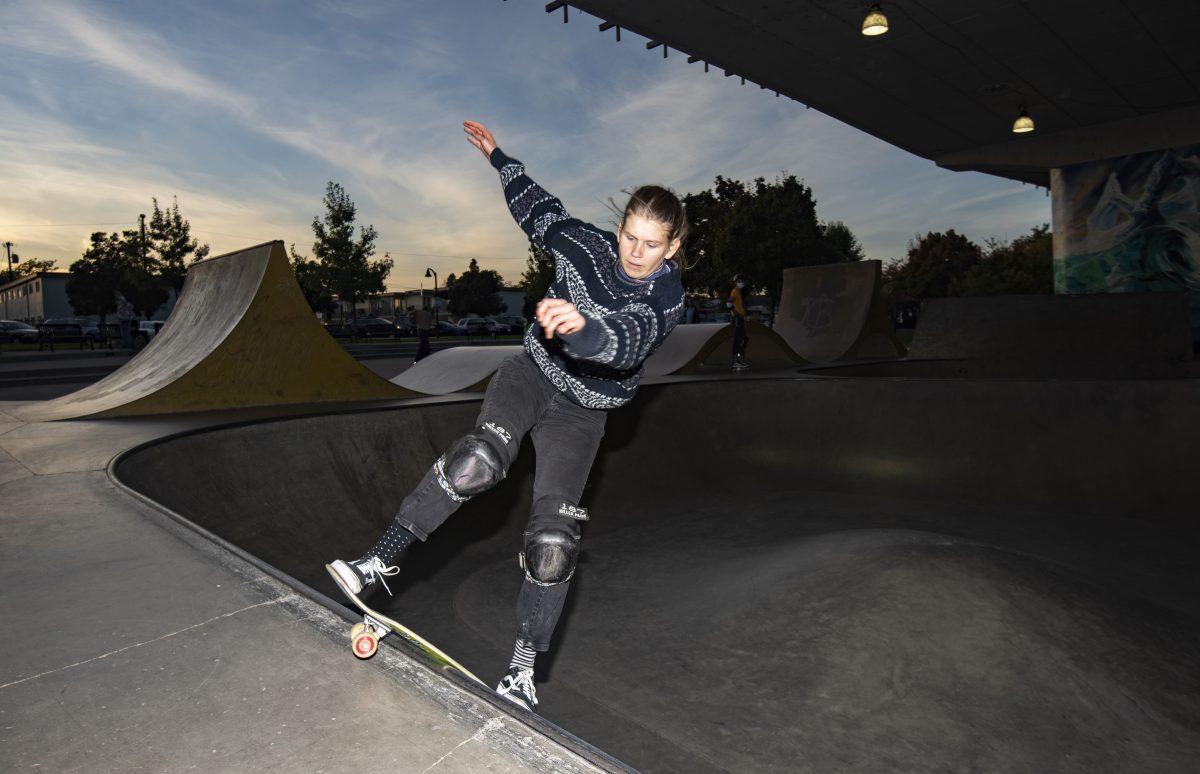

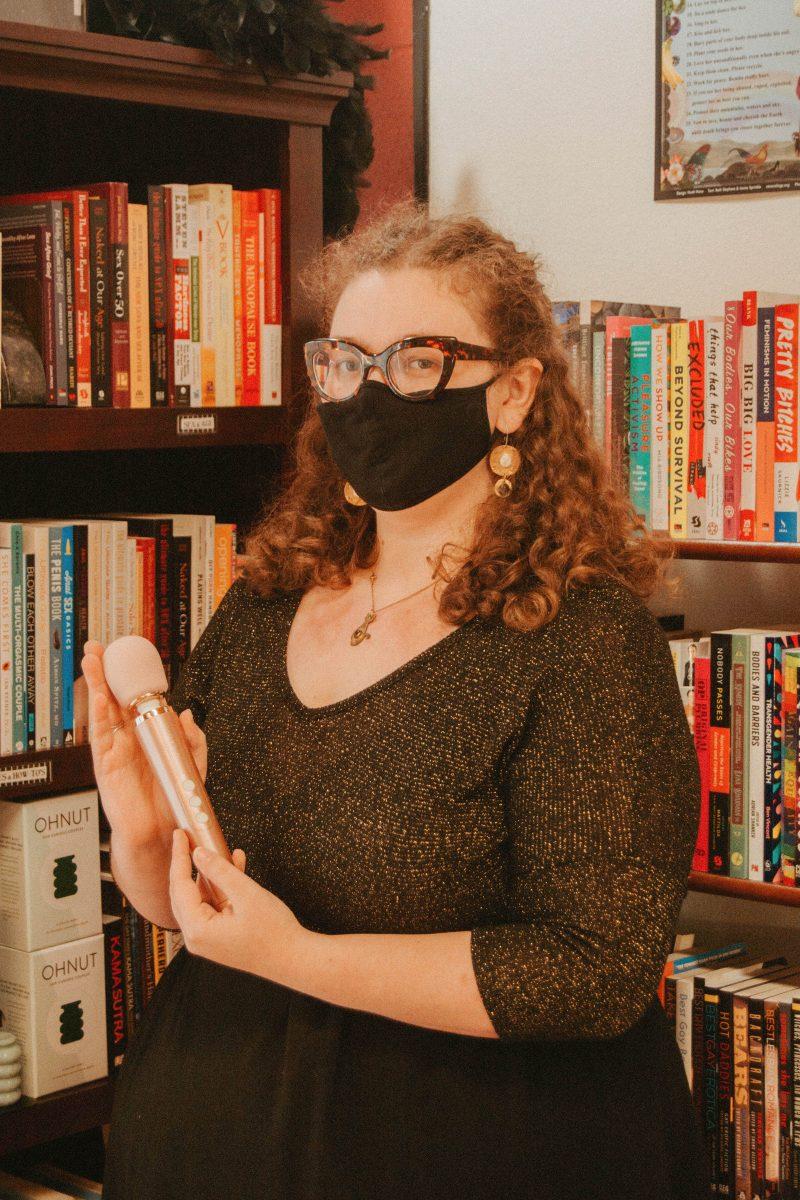
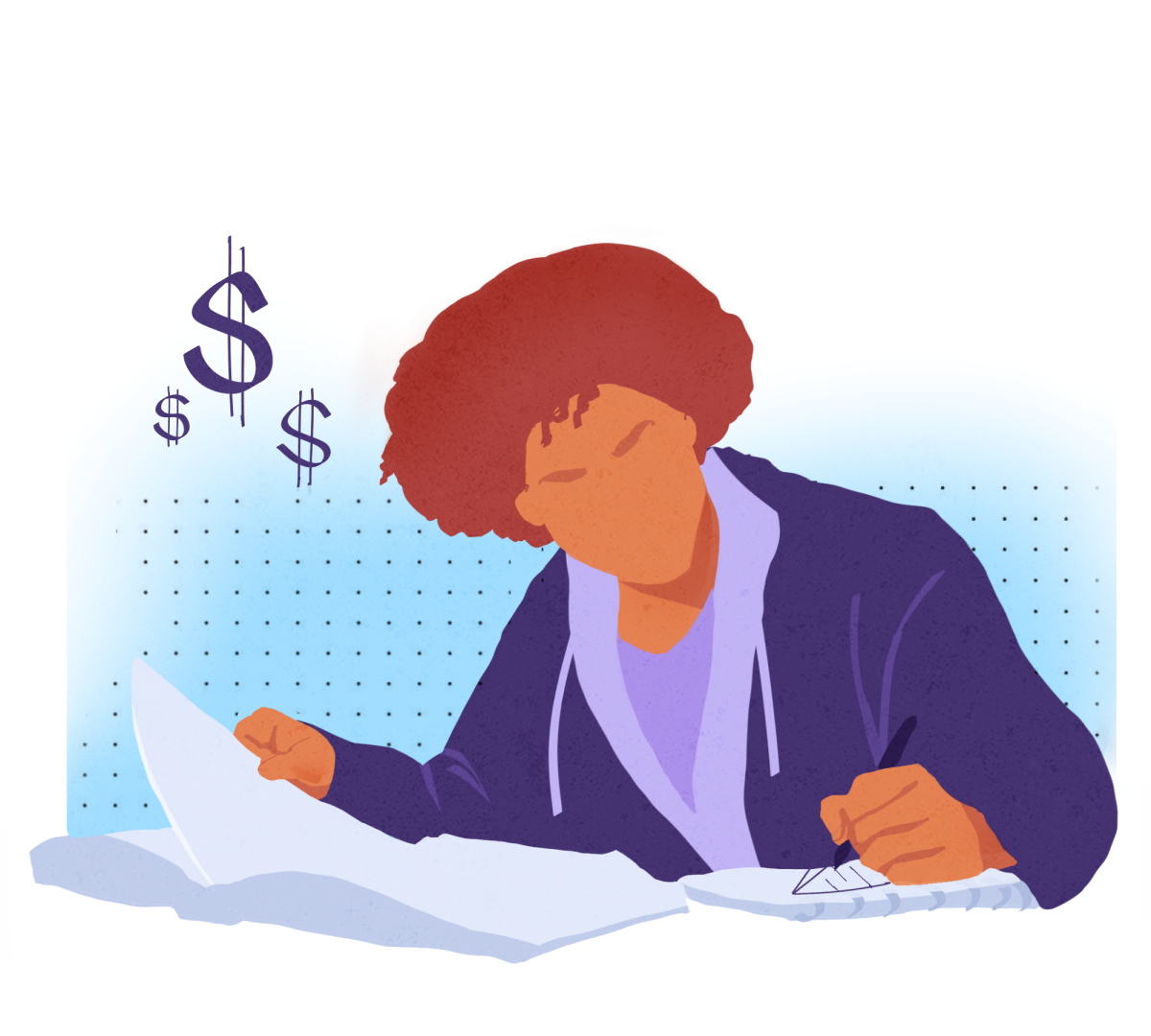
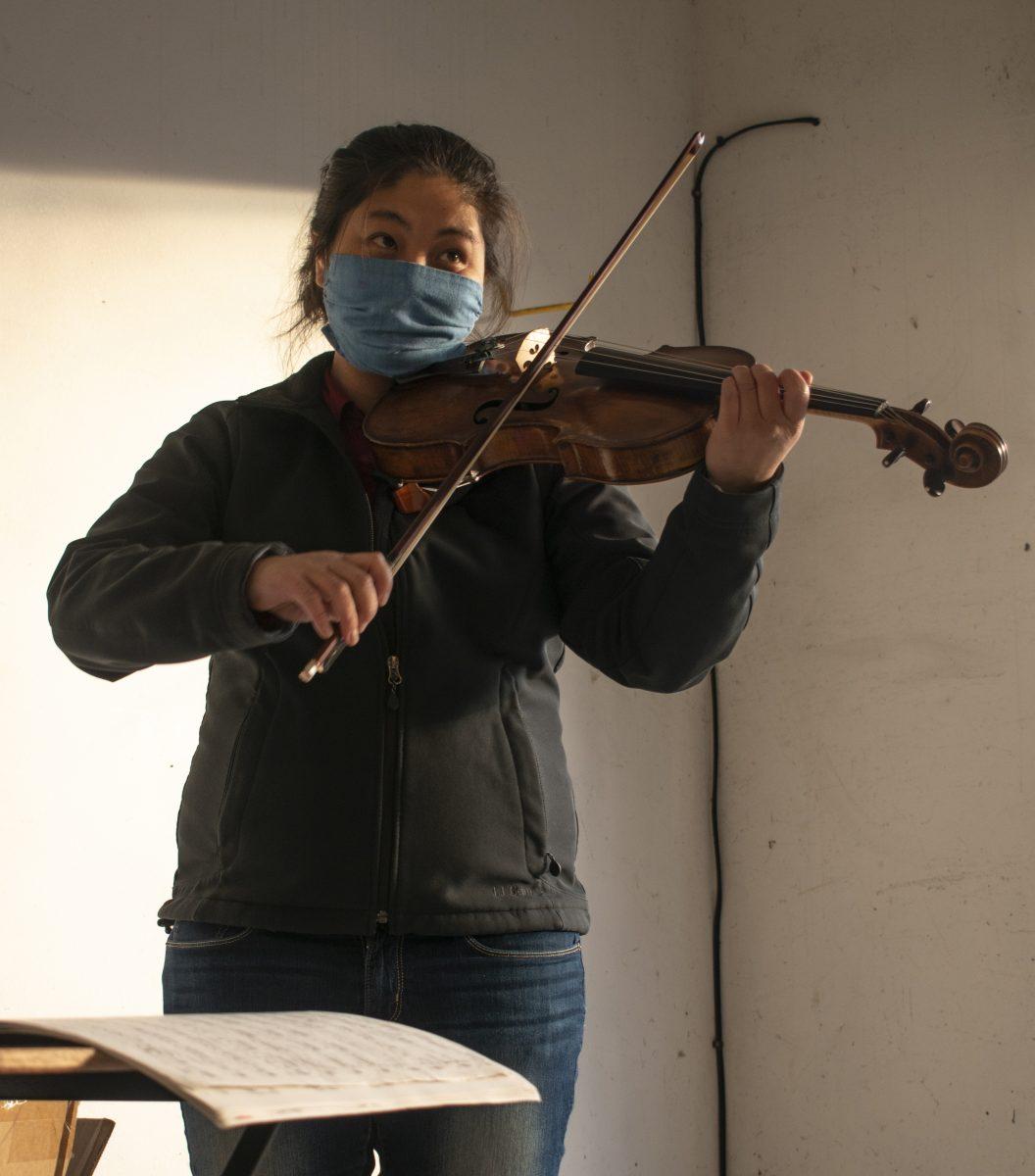
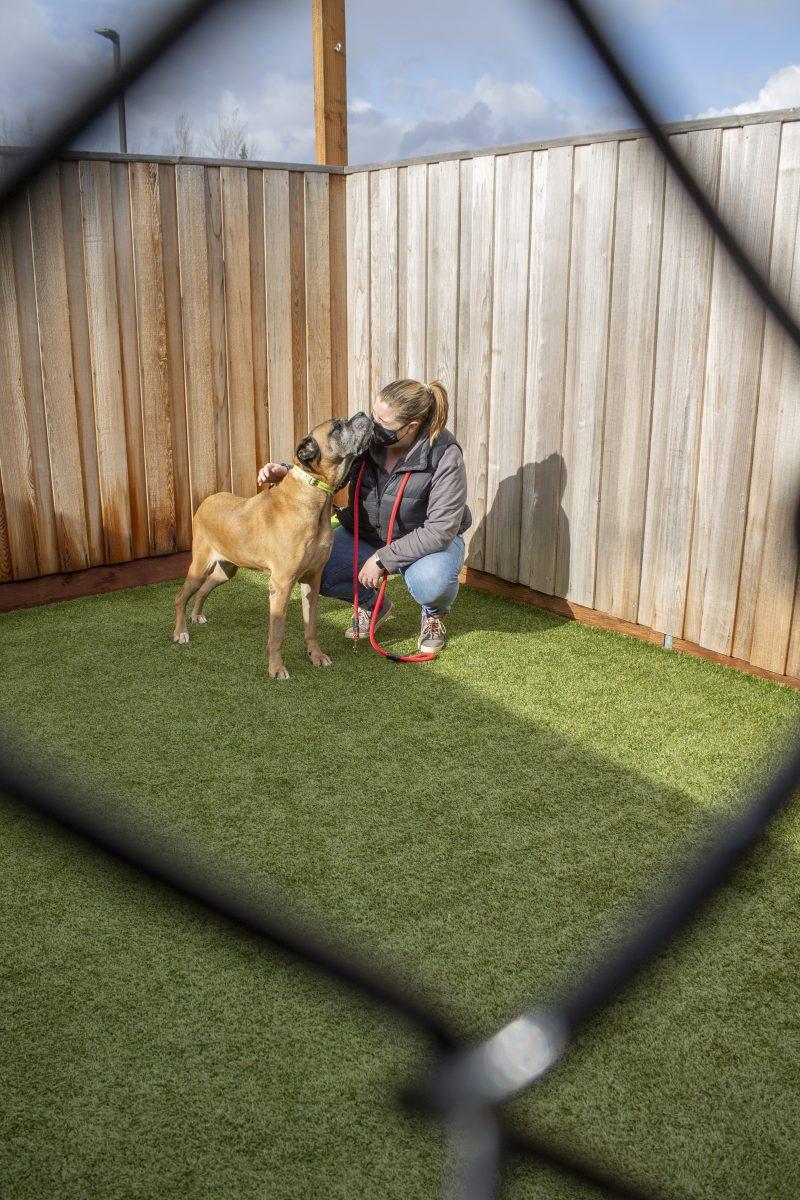
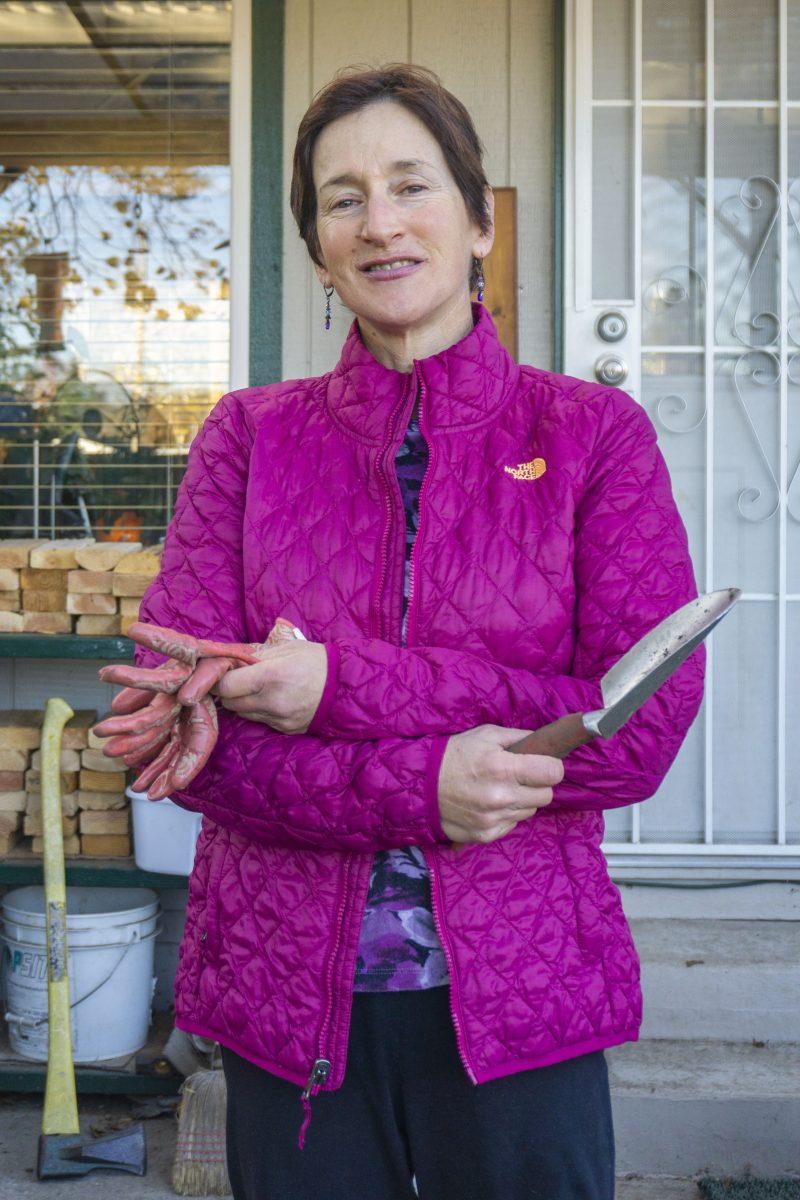
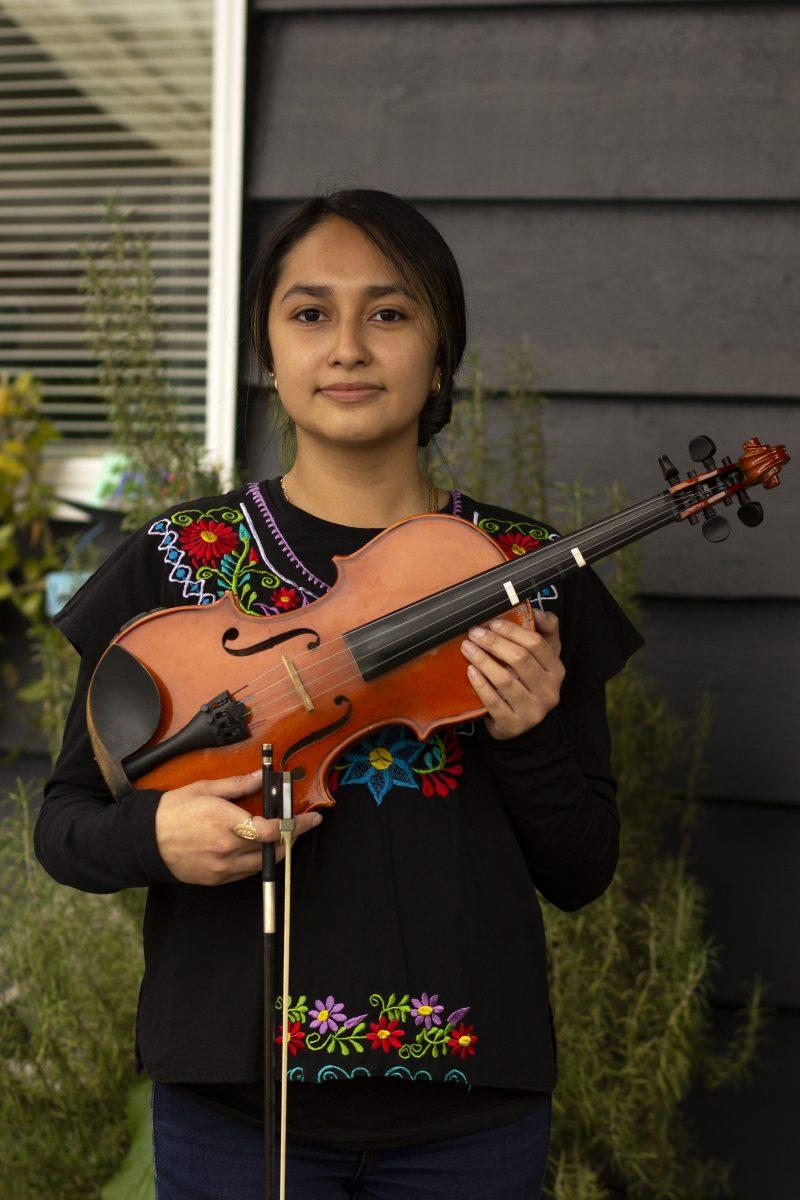


![[Photo Courtesy of the Lara Family]
Ruben embraces his beloved childhood goat, Katrina.](https://ethos.dailyemerald.com/wp-content/uploads/2025/05/katrina-1-1060x1200.jpg)



